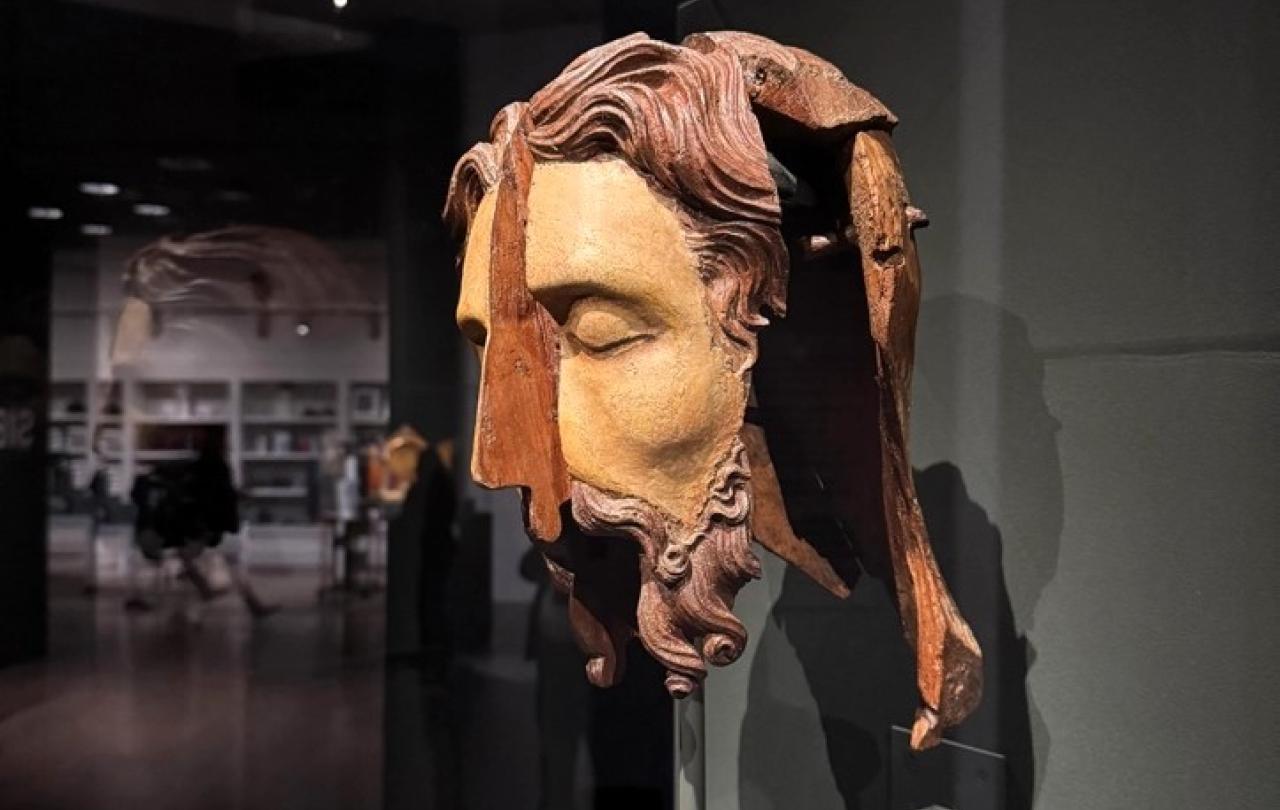
Country house gallery Compton Verney is currently hosting a delightful exhibition by British Indian artist Chila Kumari. It’s a colorful collision of worlds: neon-bright Hindu deities paired with ice cream trucks and cakes—a nostalgic nod to her father’s business during her early years in North England. Chila has captured the balance of her East-West upbringing beautifully.
But what really stopped me in my tracks was the theme of the exhibition: “Love and Truth.” Hmm, I thought. Isn’t that a very Christian theme? Hinduism, as intricate and philosophical as it is, doesn’t traditionally frame life around “truth” or “love” the way Christianity does. And yet, it’s possible that my Hindu friends and family subconsciously desire or even pursue these ideals without fully realizing it.
Surely, on January 1st, my lovely Hindu relatives will send me cheerful WhatsApp messages: “Happy New Year! Hope it’s a good one!” Naturally, I’ll reply with warm wishes of my own. But a thought will linger: haven’t they already celebrated their New Year?
The Hindu calendar, Vikram Samvat, is lunar and runs 52 years ahead of the Gregorian calendar. For most Hindus, the New Year is ushered in during Diwali, celebrated with food, lights, and fireworks. Sikhs, too, celebrate their New Year in March according to the Nanakshahi calendar. And yet, when January 1st rolls around, I’ll find myself in a sea of “hope” and “joy” messages from friends and relatives of different faiths.
Here’s where the question emerges: where did this idea of hope and joy come from? They aren’t central concepts in Hinduism, Sikhism, Jainism, or even Buddhism—not in the way Christians understand them. A friend once told me that biblical hope is “the joyful anticipation of something good.” Author Clare Gilbert described it as being “optimistic even when the heart is broken.” Similarly, Christian joy is not tied to external circumstances. It’s a steady, enduring truth that can coexist with suffering.
And yet, these words—hope and joy—are shared freely by people whose traditions don’t teach them explicitly. Why? I’m not asking anyone to stop, of course! It’s beautiful to see these blessings exchanged. But it does make me wonder: why wish someone something that isn’t foundational in your own worldview? Could it be that these words point to a deeper, unspoken longing?
Consider this: New Delhi-based journalist Garima Garg offers a fascinating anecdote in her foreword to Anthony Stone’s, Hindu Astrology: Myths, Symbols and Reality. Dr. Stone, a Christian with a PhD in theoretical physics from Oxford, went on to study Sanskrit and astrology in India. In her foreword, Garg recalls how, on the day Queen Elizabeth II died, a “comet-like orb” streaked across the sky.
Skeptics, she writes, might dismiss this as space debris or SpaceX satellites. But for believers in astrology, timing matters. A celestial event, aligned with a moment of historical significance, sparks excitement and anticipation. It’s a moment of watchful waiting, a belief that something extraordinary is happening—or is about to happen.
Sound familiar? That feeling of anticipation, of longing for something good, mirrors what Christians call hope. It’s not tethered to what we can see but rests on the unseen. Even in astrology, in its focus on aligning stars and planets, there’s an echo of this universal yearning—a desire for the extraordinary to touch the ordinary, for the unseen to become visible.
This brings me back to the heart of my reflection. Hope and joy, as the Bible presents them, are not mere words but living truths. Hope is a confident expectation of good because of God’s promises. Joy is the assurance of His presence, even in pain. Could it be that cultures and faiths that don’t explicitly teach these concepts are still reaching for them? Could the universal desire for something extraordinary be pointing to Christ?
I wonder if this is why themes like “Love and Truth” resonate so deeply, even in a Hindu-inspired art exhibition. They’re not just abstract ideas; they’re foundational to the human heart.
To be clear, I’m not criticizing anyone for sharing hope or joy. Quite the opposite—I think it’s wonderful. What I am asking is whether this sharing hints at something unspoken. Could these lovely cultures and faiths, in their pursuit of meaning, be reaching for the very hope and joy that Christ offers?
After all, Christianity teaches that God has 'set eternity in the human heart'. If that’s true, then it makes sense that people of all cultures would yearn for love, truth, hope, and joy, even if they don’t fully understand why. These aren’t just Christian concepts—they’re universal signposts pointing us toward God.
So next time someone wishes me a “joyous New Year” or sends a message of hope, I’ll smile and reply with warmth. But I’ll also ponder, quietly: where did that idea come from? Perhaps, without realizing it, they’re expressing the deepest longing of the human heart—a longing that Christ can fulfill.
Join with us - Behind the Seen
Seen & Unseen is free for everyone and is made possible through the generosity of our amazing community of supporters.
If you’re enjoying Seen & Unseen, would you consider making a gift towards our work?
Alongside other benefits (book discounts etc.), you’ll receive an extra fortnightly email from me sharing what I’m reading and my reflections on the ideas that are shaping our times.
Graham Tomlin
Editor-in-Chief





